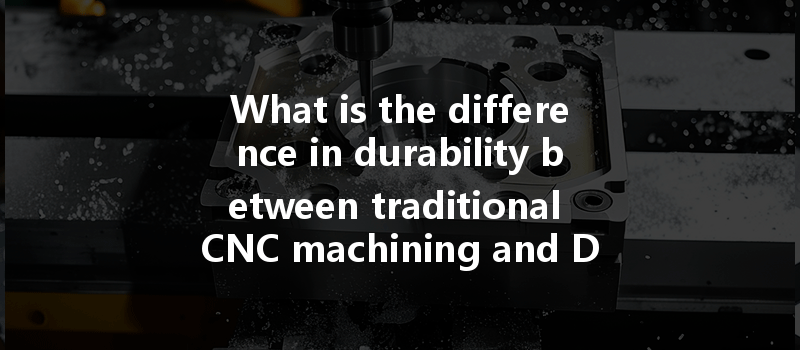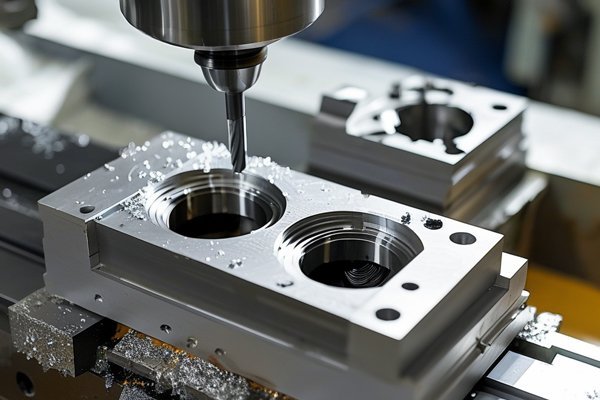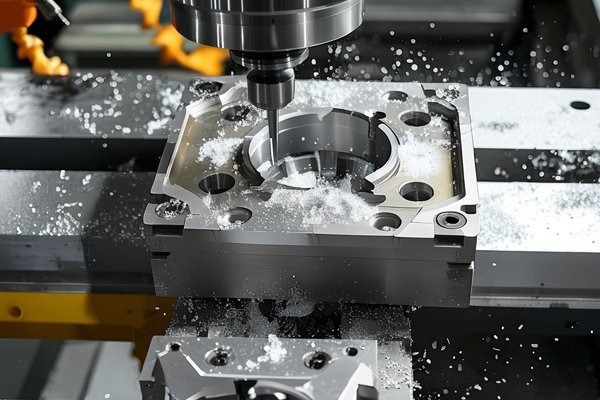In the world of precision engineering, the process of machining has seen revolutionary advancements. Among these innovations, Diamond-Like Carbon (DLC) coatings have gained significant attention for their impressive properties. Did you know that DLC coatings can increase the lifespan of machining tools by up to 300%? This remarkable fact raises important questions: What distinguishes DLC coated CNC machining from traditional CNC machining? Why should manufacturers consider shifting to this advanced technology? This blog will delve deep into these questions, exploring the fundamental differences between traditional CNC machining and DLC coated CNC machining while offering insights on their respective durability.
Understanding CNC Machining
What is CNC Machining?
CNC, or Computer Numerical Control, machining refers to a manufacturing process wherein computers control machine tools. A CNC machine interprets a programmed set of instructions and translates them into precise movements. These machines are capable of producing complex components with high accuracy and repeatability, which is critical in industries such as aerospace, automotive, and medical manufacturing.
Traditional CNC Machining: A Brief Overview
In traditional CNC machining, the tools are typically made from high-speed steel (HSS) or carbide. These materials have been reliable for decades, ensuring good performance and durability in various machining operations. However, even the best traditional tools eventually succumb to wear and tear.
Durability Challenges of Traditional CNC Machining
to DLC Coatings
What is DLC Coating?
Diamond-Like Carbon (DLC) is a form of carbon that exhibits properties similar to diamond, hence its name. DLC is characterized by its hardness, low-friction qualities, and chemical inactivity. When applied as a coating to CNC tools, it creates a protective layer that enhances tool performance and longevity.
How are DLC Coatings Applied?
DLC coatings are commonly applied using techniques like:
These advanced deposition methods ensure that the DLC coating adheres closely to the substrate material, forming a strong bond that enhances the overall durability of the tool.
Durability Comparison: Traditional vs. DLC Coated CNC Machining
Now that we understand the fundamentals, let’s delve into the specific differences in durability between traditional CNC machining and DLC coated CNC machining.
Traditional Tools: Although high-speed steel and carbide have good hardness, they can still be susceptible to wear under demanding conditions. The surface hardness is often around 60-70 HRC (Rockwell Hardness).
DLC Coated Tools: These can reach hardness levels of approximately 85 HRC or more. The thicker and harder the DLC coating, the more wear-resistant the tool becomes, leading to significantly extended tool life.
Traditional Tools: High friction during machining causes additional wear and stress on tools. Moreover, traditional materials typically have higher thermal conductivity, leading to overheating during prolonged use.

DLC Coated Tools: The low-friction coefficient of DLC coatings reduces wear rates and minimizes heat generation. This thermal insulation not only keeps the tool cooler but also reduces the chances of thermal expansion issues, maintaining dimensional stability.
Traditional Tools: They can be vulnerable to chemical reactions with certain materials, leading to premature failure.
DLC Coated Tools: The inert nature of the DLC coating offers superior chemical resistance, making it ideal for machining a wide range of materials without fear of degradation.
Traditional Tools: As tools wear, the consistency of product output can decline, compromising dimensional accuracy and surface finish.
DLC Coated Tools: Maintaining a sharper edge allows for better control of chip removal and surface finish, significantly improving output quality, which reduces the need for subsequent finishing operations.
Practical Applications and Industry Impact
In aerospace manufacturing, where precision and reliability are paramount, the use of DLC coated tools has proven beneficial. Improved tool longevity translates into reduced downtime during production and less frequent tool changeovers, leading to cost savings.
The automotive industry is highly competitive, and quality control is crucial. DLC coatings enhance the performance of machining operations involving high-strength materials, allowing manufacturers to produce components that meet stringent safety and performance standards.
In the production of medical devices, precision is critical. The low friction and excellent wear resistance of DLC coated tools ensure that manufacturers can meet the exacting tolerances required for implants and surgical instruments.
Addressing Common Concerns about DLC Coated CNC Machining
While the upfront cost of DLC coated tools can be higher than traditional tools, the long-term savings from reduced tool replacements and improved machining efficiency quickly offset this initial investment.
As the adoption of DLC coatings increases, so does the availability of these tools in the market. Manufacturers should partner with reputable suppliers who can provide quality DLC coated tools for their CNC machining operations.
In summary, the comparison of durability between traditional CNC machining and DLC coated CNC machining reflects a profound shift in manufacturing efficiency and tool performance. The adoption of DLC coatings can lead to enhanced hardness, reduced friction, improved chemical resistance, and superior surface finishes.
The significant increases in tool life not only translate to reduced operational costs but also position companies to respond effectively to the high demands of modern manufacturing.
As industries pursue innovation through technology, understanding the distinctions between traditional and DLC coated CNC machining becomes essential. By embracing these advancements, manufacturers can significantly enhance their competitive advantage in an ever-evolving marketplace.
Why This Blog Matters
This discussion serves as a reminder of the potential of technological advancements in manufacturing. In an era where quality and efficiency define success, considering the benefits of DLC coatings can be a key factor in achieving long-term operational excellence. Therefore, as industry professionals, it’s imperative to remain informed and adaptable in the face of innovation that can redefine production capabilities.






